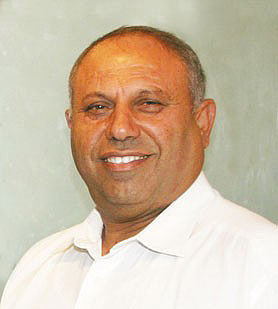This year will open with a festive symposium that will be held in Berlin on April 7-8 in the presence of the ministers and a large crowd of scientists. The delegation of the Ministry of Science, Culture and Sports will include fifteen young scientists from Israel

The Minister of Science, Culture and Sports Ralav Majadala and the German Federal Minister of Education and Research (BMBF) Dr. Ante Schaban will announce the year 2008 as the year of Israel-Germany scientific cooperation, on the occasion of the 60th anniversary of the independence of the State of Israel.
In the opening symposium, a special emphasis will be placed on encouraging collaborations between the young scientists from Germany and Israel, who will present their findings and the collaborations that exist today and discuss the possibilities for strengthening and tightening the scientific ties between them. In addition, the Israeli delegation will also tour research institutions in Berlin. Minister Majadala and his German counterpart say that the investment of hundreds of millions of euros in research and the close ties between the two countries have proven their worth and now we can celebrate the fruits of the joint work, promising the continuation of the intense cooperation and its deepening for the well-being of the two nations and humanity as a whole.
During his visit, the Minister is to declare together with Minister Shaaban of their intention to open a new joint research program in the field of civil security, for the mutual benefit of the two countries. The details will be finalized in the coming months.
The year 2008 is also the 20th year of the founding of the German-Israeli Foundation for Scientific Research and Development (GIF). Scientific relations between the two countries began in the early sixties, even before the establishment of diplomatic relations between them. The Weizmann Institute of Science and the Max Planck Society in Germany started the collaboration. The humble beginnings of postdoctoral student exchanges that began at that time developed into a large-scale program, MINERVA (about 500 scholarships for young scientists with a total amount of about 8.5 million euros; 70 projects with a scope of 3.5 million euros and forty centers in Israeli universities with a scope of about 55 million Euro with all the funding coming from Germany).
Over the years, the science ties between Israel and Germany have been expanded and deepened, and they now encompass many channels, the most important of which are: The BMBF-MOST program, managed through the two ministries: founded in 1973, funds research in the fields of life sciences and exact sciences to a total of about 500 million euros , with most of the funding coming from the BMBF. German-Israeli Foundation for Scientific Research and Development (GIF): Founded in 1986 and funds joint research in the fields of natural sciences and social sciences and humanities. To date, more than 800 joint studies have been funded in a total amount of about 160 million euros. There are also other organizations that fund various programs such as: the German National Society for Basic Research DFG - for funding bi-national and recently multinational research; DAAD - to finance the exchange of young scientists between the two countries. It should be noted that all these organizations will be involved in the various events that will take place during 2008.
